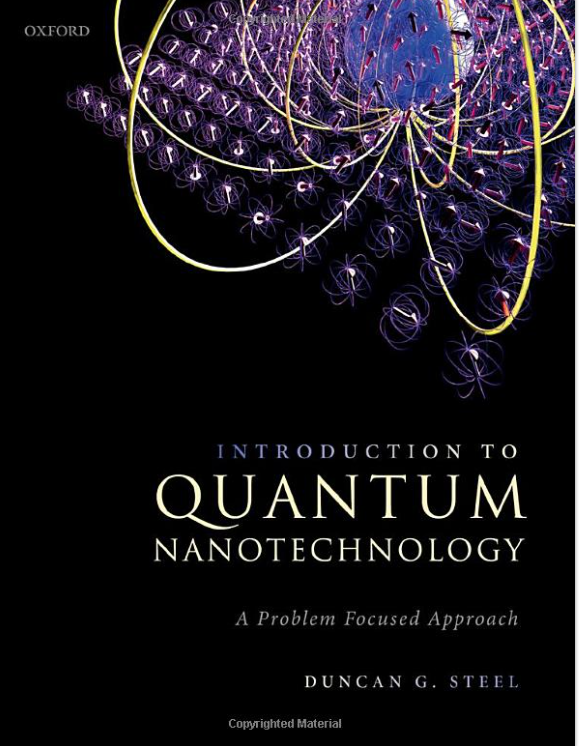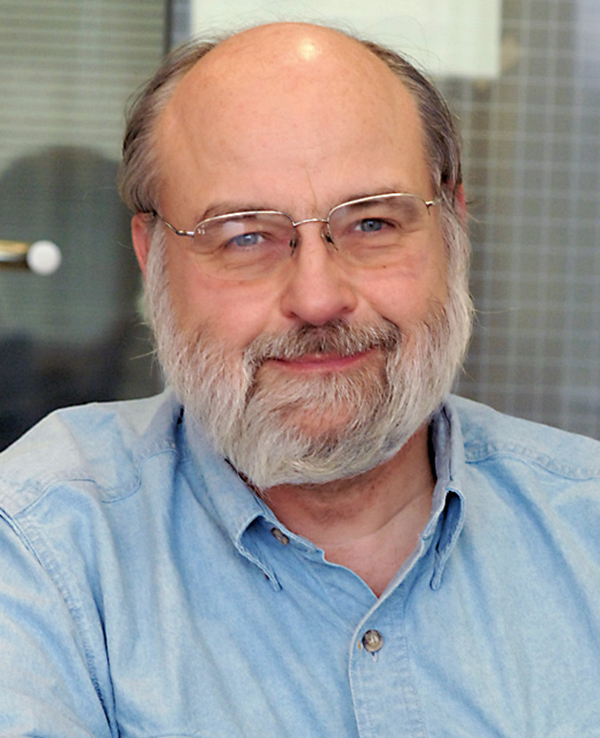New textbook introduces students to the field of Quantum Nanotechnology
The textbook helps prepare upper level undergraduate students and graduate students to join the quantum revolution

 Enlarge
Enlarge
A new textbook, Introduction to Quantum Nanotechnology: A Problem Focused Approach, published by Oxford University Press, helps students prepare to be part of the quantum revolution by providing the technical background to work in a field that has emerged as a game-changer in technology.
Quantum-based technology is perceived as the new paradigm for science and engineering, offering “major breakthroughs in areas such as sensing and measurement, computing and simulation, and communication and networking,” says the National Science Foundation (NSF).
There are four things happening in quantum that are ensuring its impact on future technology, says Duncan Steel, who authored the textbook. They are: superposition, which is key to quantum computing; the ability to create artificial atoms; quantum entanglement; and ultra-sensitive measurements thanks to single quantum optics, or quantum dots.
Introduction to Quantum Nanotechnology was inspired by Steel’s concern for the future of quantum education – a concern shared by NSF as well as the U.S. Government, which formed the National Quantum Initiative in 2018.
The textbook introduces undergraduate students to material often not seen until graduate school, yet only presumes an introductory level of physics.
Steel had taught the graduate level courses Applied Quantum Mechanics I and II since arriving at Michigan in 1985, and later added the advanced graduate courses Quantum Theory of Light, and Topics in Quantum Optics.
But about five years ago, seeing that the field of quantum technology was going to take off, Steel wanted to reach students earlier in their academic careers.
“I felt that undergrads were going to want to understand this, but for me, the traditional way of teaching is often not very inspirational,” said Steel. “It can take more than a year of study to get to the really exciting ideas.” So he began to design a course for undergraduate students that would capture their imagination and inspire students to pursue the field.
The result of Steel’s initiative was the senior-level undergraduate course, Introduction to Quantum Nanotechnology.
Students taking the course are highly-motivated to learn the material as it is not a required course, which allowed Steel to teach the course for understanding rather than assessment. “It’s a requirement to get an A,” said Steel, “and you can have as many chances as you want to get an A.” Meaning – students can revise homework and retake exams as many times as needed to learn the material. Students really like the course!
The course is suitable for students from many different specialties, and has already attracted students from the departments of Electrical Engineering and Computer Science, Mechanical Engineering, Materials Science and Engineering, and Climate & Space Sciences & Engineering.
Notes from the course Introduction to Quantum Nanotechnology formed the basis for Steel’s new textbook of the same name, expected to ship on May 30, 2021. It is available in hardcover, as a paperback, and as an Ebook. The textbook covers two semesters of content, but can easily be adapted to a one-semester course, which is how it is currently taught at the University of Michigan.

 Enlarge
Enlarge
Duncan Steel, the Robert J. Hiller Professor of Engineering, is a professor of Electrical Engineering and Computer Science. He also holds an appointment in the Departments of Physics.
His research focuses on the use of coherent optical interactions to study, control, and manipulate the quantum properties of semiconductor heterostructures. His research group is examining these structures as quantum devices for application to quantum computing.
Steel is a Guggenheim Fellow, and recipient of the APS Frank Isakson Prize for outstanding optical research. He received the U-M Distinguished Graduate Mentor Award, and has worked to advance minority students in STEM. He is a Fellow of the Optical Society of America, the American Physical Society, and the IEEE.
 MENU
MENU 
